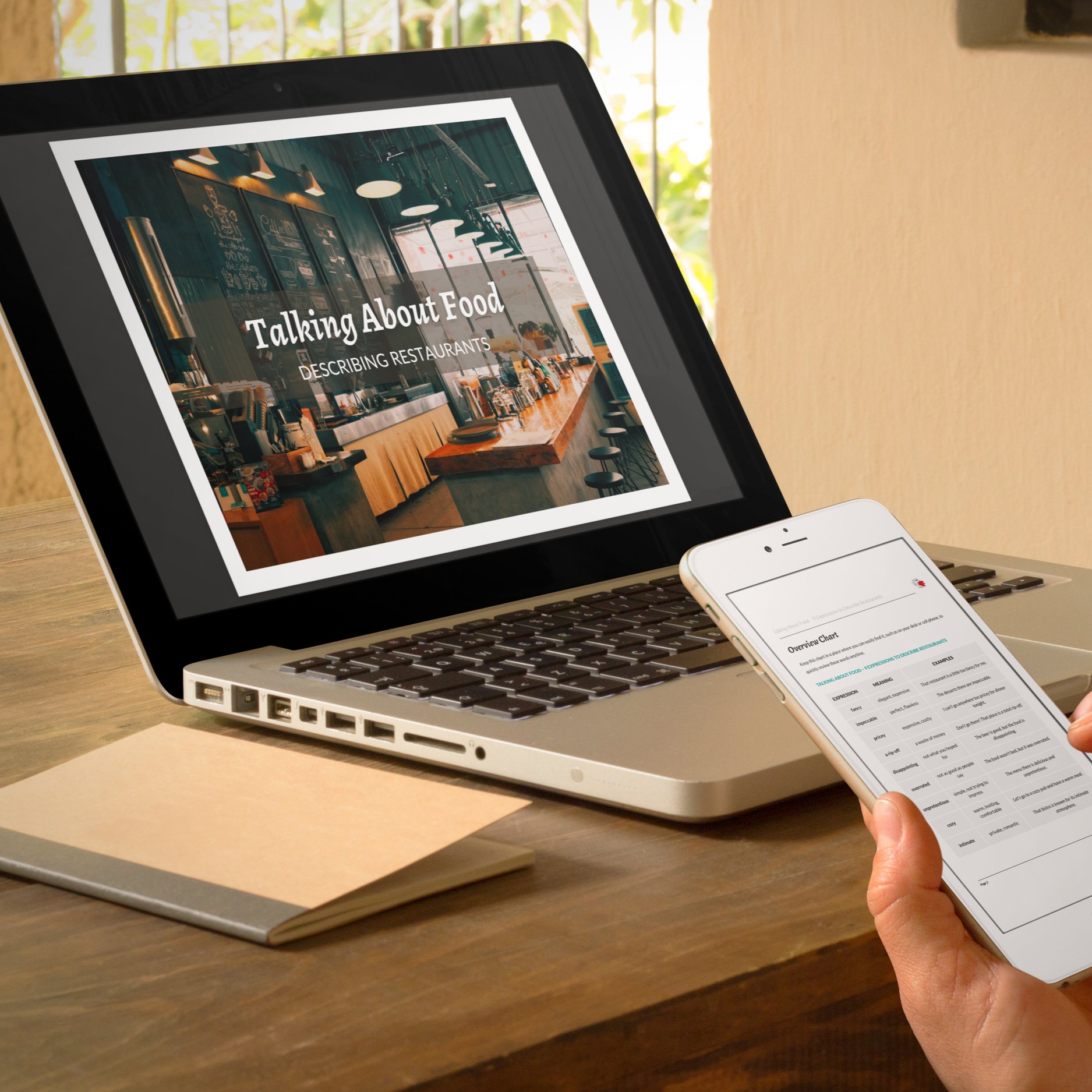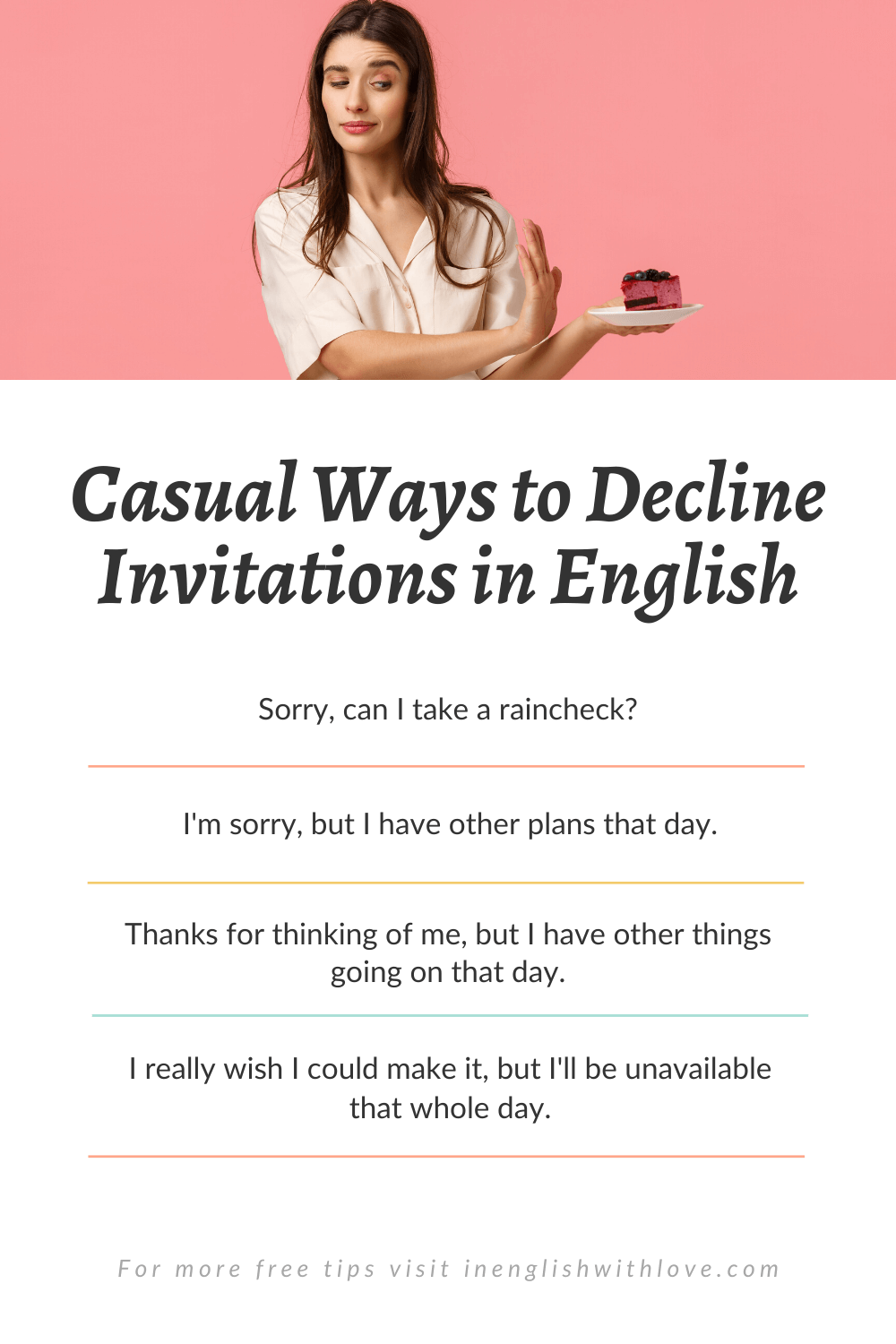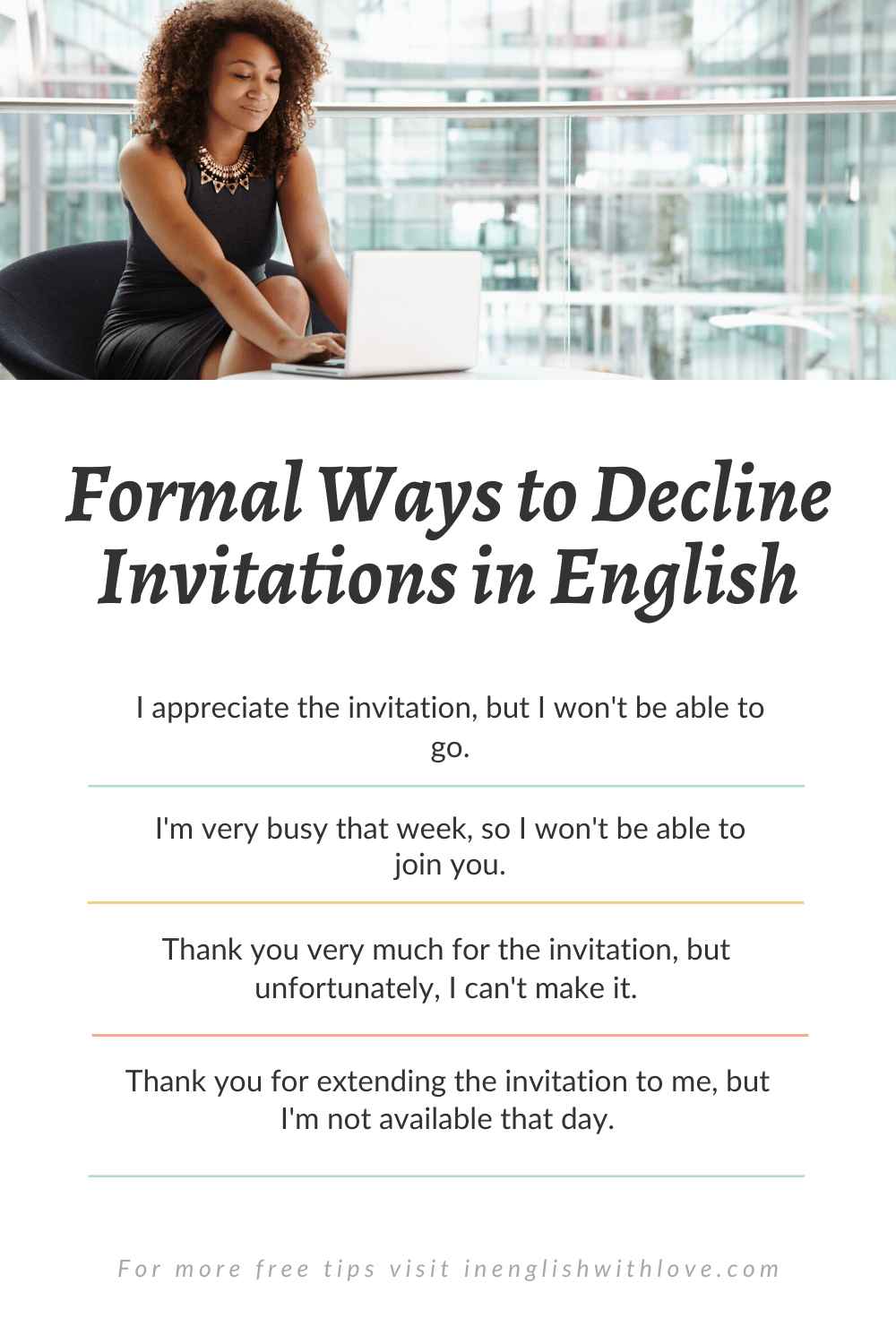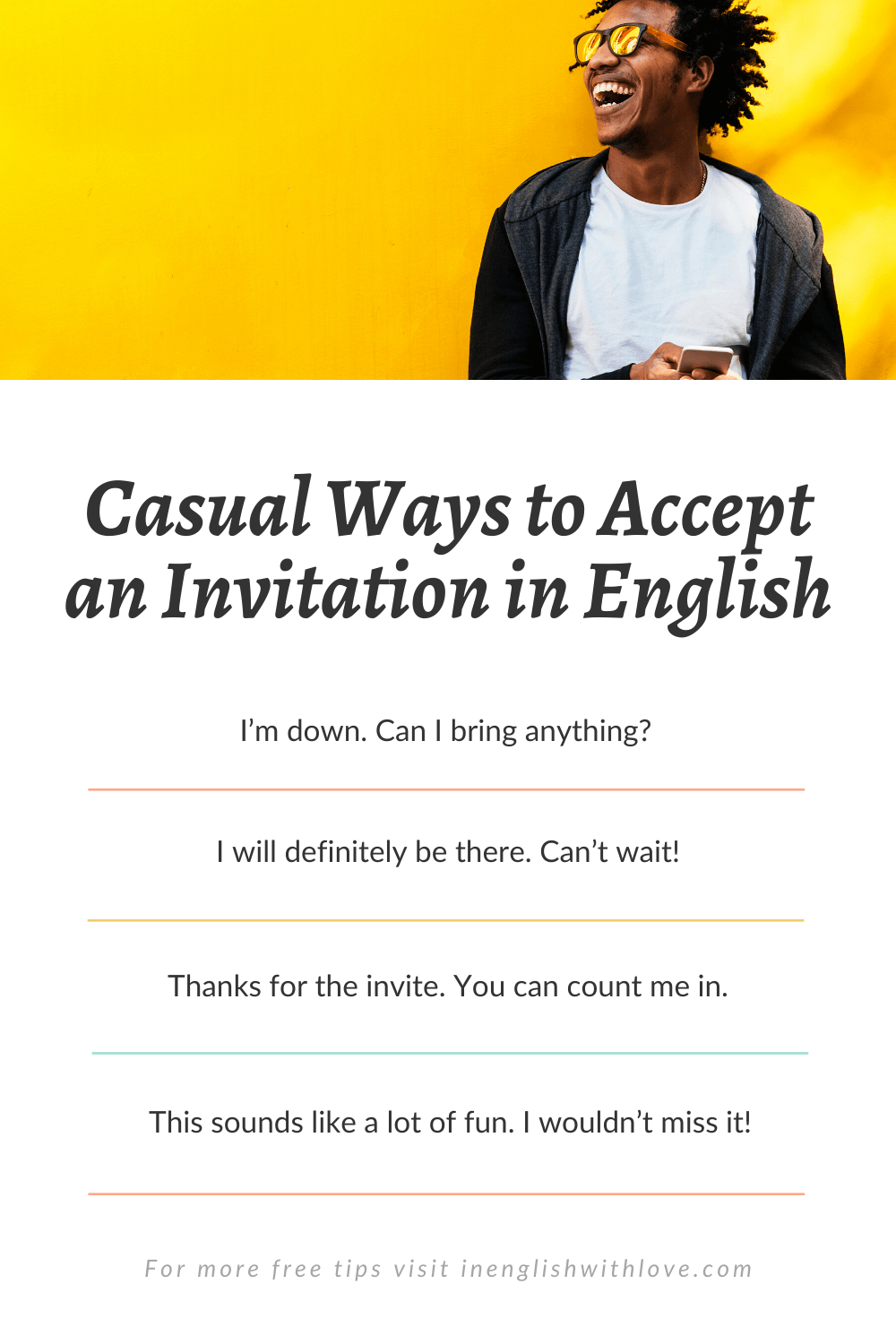How to Decline an Invitation in English
You were just invited to a party by a friend of yours. You really want to go, but then you check your schedule. It turns out that you have a prior obligation. How do you tell your friend that you can’t attend in a language both you and they can understand?
To decline an invitation in English, you can try these phrases:
Sorry, I have other plans. I’ll definitely go next time!
I wish I could make it, but I can’t. I have a test that day.
I have something else going on that day, sorry!
I’m really busy that week, so I can’t go. Can we hang out later?
Keep reading for more ways to formally and informally turn down invitations. I’ll even share how you can say maybe and yes in a way that fits the situation. Let’s get started!
Teaching English Just Got Easier!
Save hours of time with an organized collection of high quality, easy-prep ESL lesson plans and worksheets right at your fingertips.
HOW TO RESPOND TO INVITATIONS IN ENGLISH
Casual and Formal Ways to Turn Down an Invitation in English
Whether it’s a work dinner you have to miss or a niece’s third birthday party, sometimes you’ll have to turn down an invitation because of other commitments.
Navigating what to say in English when declining an invitation can be difficult if you’re still learning the language. Oversharing your plans or saying too much could hurt the other person’s feelings or get you in trouble at work. Going the vague approach though can make you seem standoffish and rude.
You’ll want to handle what you say with care then. You also want to make sure you watch your wording. A casual rejection of a professional invitation isn’t really appropriate.
Here are some ways to turn someone down for an event invite, both casually and formally.
Casual Ways of Turning Down an Invitation
I’m sorry, but I have other plans that day.
Thanks for thinking of me/us, but I have something else going on that day.
Sorry, can I take a raincheck?
I really wish I could make it, but I’ll be unavailable that whole day.
I want to go over the vocabulary here a bit. When you ask somebody for a raincheck, that means that you’re requesting you two meet up another time. A raincheck is a literal check that was once issued to people at outdoor events due to the rain. The raincheck concept hasn’t stuck around, but the term has.
When you say you “wish you could make it,” you’re not talking about literally making something. You’re saying you wish you could go, but you’re using a casual term to express it. You can say “make it,” in a positive way as well. For example, if you could go to your friend’s party, you’d tell them something like, “I can definitely make it. I can’t wait to see you there!”
Formal Ways of Turning Down an Invitation
Thank you very much for the invitation, but unfortunately, I can’t make it.
I’m very busy that day/week, so I won’t be able to join you.
Thank you for extending the invitation to me, but I’m not available that day. I’m really busy with work. Can we have a meeting later this week?
Sorry, I appreciate the invitation, but I won’t be able to go. I have a big project that I have to complete. Let’s talk later this week about how the event went.
Sometimes, whether turning down someone formally or informally, they may ask you why you can’t attend. Here’s what you might say to get you out of the situation:
My child has a big soccer game that day and I definitely can’t miss it.
I have a doctor’s appointment that afternoon.
I’m working in the morning and I’ll be pretty tired after, so I want to rest for the day.
I have to drive a family member of mine to the airport and I don’t know how long I’ll be gone.
I’m going to a concert/sporting event that day.
To keep the relationship between you and this other person in good standing, end the conversation positively. Here are some good phrases to use:
Sorry again I can’t make it, but I hope you enjoy your party!
It looks like it’ll be a great day for a barbecue, so have fun. I’ll be there next time!
We should definitely hang out next week when I get a little more time, okay?
I’ll be there in spirit.
I’ll be thinking of you!
To say that you’ll “be there in spirit” has nothing to do with being deceased, by the way. Instead, it’s a nice phrase that means your spirit will be there at the party, even if you physically cannot be.
Casual and Formal Ways Say Maybe to Invitations in English
What if you find yourself in another predicament? This time, you receive an invitation from a friend or work colleague, but you’re not sure if you can attend. You don’t want to say no right away in case you’re not busy. You’re not comfortable telling them yes, either. What do you say?
In such a situation, you want to answer with a maybe.
In keeping with the formal and informal approach, here are some phrases I’d recommend when you have to say maybe to an invitation.
Casual Ways of Saying Maybe to an Invitation
Thanks for the invite! I think I’m busy that day, but I’ll let you know.
Wow, this sounds like fun. I think I should be able to make it, but I’m not sure.
Thanks for inviting me! Can I let you know if I can go tomorrow?
I’ll have to check with my (spouse/partner/friend you’re bringing) and see if they’re available. Let me get back to you.
I’m not sure right now if I can go, but I can tell you later.
Formal Ways of Saying Maybe to an Invitation
Let me look over my schedule. I’ll let you know shortly.
I can confirm my acceptance at a later date.
I should have a good idea by [date] whether I can accept. If something changes before then, I’ll reach out to you immediately.
I appreciate the invitation, but I cannot confirm right this moment.
Casual and Formal English Phrases for Accepting Invitations
You won’t turn down every last invitation from friends and family. When you’re sure you can make it and you would love to attend, how do you let the other person know? I’d suggest learning these casual and formal phrases.
Casual Ways of Accepting an Invitation
This sounds like a lot of fun. I wouldn’t miss it!
I will definitely be there. Can’t wait!
Thanks for the invite. You can count me in.
I’m down. Can I bring anything?
I want to go over the vocabulary for two of these phrases. When you say “you can count me in,” it means that you’ll be among the participants. It’s just a different way of saying “I’ll be there.”
If you’re familiar with “you can count on me,” that means something different. It’s referring to your reliability. “You can count on me” is another way to say “you can trust me”.
Here’s another casual English phrase that might not make sense as you learn the language. When you tell someone “you’re down,” it doesn’t mean you’ve fallen down. When used in this context, it also doesn’t mean your mood is down, in that you’re sad.
Instead, it’s an informal way to say that you’re accepting an invitation to do something, such as going to your friend’s party. Rather than using this slang directly, you can also try saying something like “sure thing” or “I’m in.” They mean the same thing.
Formal Ways of Accepting an Invitation
The above phrases are definitely those you want to reserve around close friends and family only. Here are some ways to express enthusiasm about an event you can attend in more formal language.
I would be delighted to accept your invitation.
Thank you for inviting me. I will see you there.
I am available on [date] and will gladly see you then.
I am very pleased to confirm that I will be attending the event.
Have you received an invite to an event you can’t attend? You want to tell the person you can’t go without causing them any offense. Finding the right words to use in English can be difficult if you’ve never dealt with such a situation before.
The formal and informal phrases I shared in this article are all great ones to learn. Now you can confidently accept, reject, and even say maybe to invitations from friends, family, and work colleagues. Best of luck!
If you liked this article, please share it with your friends. Thanks for reading!
About the Writer
Sama is the founder of In English With Love and an online English educator from Canada with over ten years of experience in the industry. Her mission is to make quality English learning materials accessible to English learners and teachers everywhere.








